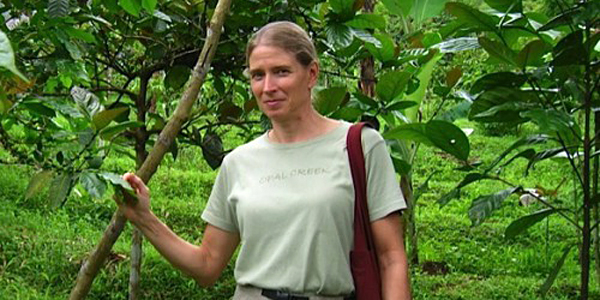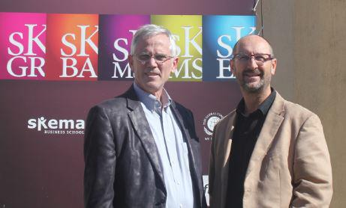The following letter from the Executive Committee of the Natural Resources Foundation was emailed to College of Natural Resources alumni, friends, students, faculty and staff on March 20, 2013.
Dear Friends of the College of Natural Resources,
Much conflicting information has circulated around a potential sale of the Hofmann Forest, managed by the Natural Resources Foundation for the benefit of North Carolina State University’s College of Natural Resources. We, the Executive Committee of the Natural Resources Foundation Board of Directors, write to clarify our rationale and process to consider a sale.
The Hofmann Forest has a long history in the College of Natural Resources. It has been managed over the years for teaching, research, and more recently, as an income source for the College. Changes in the educational use of the Forest began in the 1950s when the College relocated its educational programs from the Hofmann to our Hill Forest in nearby Durham County. The College’s forestry research programs now occur quite literally all around the world. Only a very small number of today’s CNR students ever visit Hofmann Forest.
While recognizing its unique heritage and values, as a Board, we have focused primarily on the management of the Forest as a critical financial asset for the College. Over the last 10 years, income from the Forest has fluctuated greatly, and over the last few years, it has declined. These declines are evident in the Foundation’s publically available financial reports. Currently, the income from the Forest does not meet the critical needs of the College.
We are also concerned because the forest represents about 90% of the total assets of the Natural Resources Foundation. Most other institutions only hold 10-15% of assets in forestland, and generally this land is dispersed geographically to reduce risks and access multiple wood markets. Cash flow from this Forest, in just one place, is particularly vulnerable to the risks of fire, hurricane, or other catastrophic events and the Forest can only supply wood to one geographic market.
The Natural Resources Foundation has a fiduciary responsibility to use the Forest to best meet the needs of the College and its students. As part of our fiduciary responsibility, we are exploring a potential sale, if price and other conditions that are consistent with the values of the College are met. Considerations that would be part of any sale include preserving the legacy of Doc Hofmann by retaining the Forest name, maintaining access for students and faculty to conduct research, and maintaining a working forest on this site. We are also considering a range of options for managing the Forest differently if we do not find such a buyer.
Recognizing the need to hold the financial details of a potential sale confidential, we have broadly shared information about our actions. Beginning more than a year ago, there have been a variety of public sessions with College faculty, staff and students, and with outside partners to share information and receive feed back about the need to manage the Forest differently, including potentially selling the property. While we are not in a position to share the details of any potential offer at this time, we have set a deadline in late March to receive offers to purchase. The Natural Resources Foundation Board will meet in April to consider these offers and make a decision about how best to move forward, whether this is to negotiate a final sales agreement or to pursue other options.
We believe that the additional endowment support for the College that could result from a sale of the Hofmann Forest would create exciting new opportunities that cannot be achieved in any other way. The additional funds would be used to:
o Attract the best and brightest undergraduate and graduate students by providing additional scholarships;
o Fund new hands-on engaged learning opportunities for students;
o Support new professorships in emerging areas important to our state and the nation;
o Facilitate interdisciplinary research in the areas of sustainability science and policy, forest and watershed management, energy, water and the environment; and
o Continue to support our traditional strengths in forestry, outdoor recreation, and forest products.
We are confident the resulting impact from Doc Hofmann’s legacy would be transformational.
Sincerely,
Brenda Brickhouse, President, NC State Natural Resources Foundation Board
Art Raymond, Board Member
Jim Buzzard, Board Member
Ken Hines, Board Member
David Ashcraft, Board Secretary
Mary Watzin, Dean, NC State University College of Natural Resources
 GREENSBORO, N.C. — Today, Michael Cooper, PGA, is the general manager at Harbour Pointe Golf Club in New Bern, N.C. But not too long ago he was just a young high school graduate trying to plan a career path in the golf industry. Cooper eventually entered one of America’s 20 Professional Golf Management University Programs (also known as PGM schools), which are designed to help provide entrée into the realm of real-world golf in the Professional Golfers’ Association (PGA). It is a high-motivation, high-reward, plenty-of-opportunities-for-long-term success kind of career path.
GREENSBORO, N.C. — Today, Michael Cooper, PGA, is the general manager at Harbour Pointe Golf Club in New Bern, N.C. But not too long ago he was just a young high school graduate trying to plan a career path in the golf industry. Cooper eventually entered one of America’s 20 Professional Golf Management University Programs (also known as PGM schools), which are designed to help provide entrée into the realm of real-world golf in the Professional Golfers’ Association (PGA). It is a high-motivation, high-reward, plenty-of-opportunities-for-long-term success kind of career path.

 The lecture, cosponsored by the College of Natural Resources and the College of Agriculture and Life Sciences, was part of a week of festivities celebrating Earth Day. The following is an excerpt from an article in the student newspaper.
The lecture, cosponsored by the College of Natural Resources and the College of Agriculture and Life Sciences, was part of a week of festivities celebrating Earth Day. The following is an excerpt from an article in the student newspaper.
